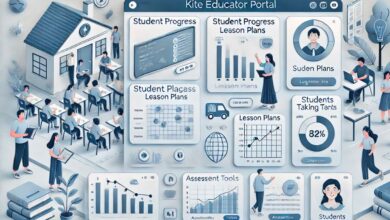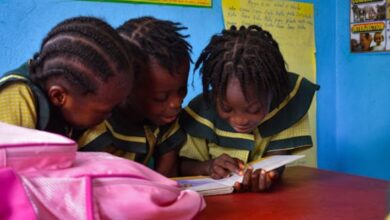Understanding Early Childhood Education Courses: A Pathway to Shaping Young Minds

Early childhood education is a critical stage in a child’s development, and the courses designed to prepare educators for this role are comprehensive, structured, and vital for effective teaching. These courses cover everything from child psychology to curriculum development, providing educators with the knowledge and skills necessary to nurture young learners. Whether you are starting your journey as an educator or enhancing your skills, early childhood education courses are pivotal in shaping the future of education.
What Are Early Childhood Education Courses?
Early childhood education courses are specialized programs designed to prepare educators to work with children typically aged from birth to eight years old. These courses provide foundational knowledge in child development, teaching methodologies, and classroom management. They offer practical, research-based education tailored to meet the needs of young learners in diverse settings such as preschools, daycare centers, and kindergarten classrooms.
Courses range from introductory levels for those new to the field to advanced studies for experienced professionals. They focus on fostering the cognitive, emotional, and physical development of children, ensuring that educators are well-equipped to create nurturing and effective learning environments.
Key Components of Early Childhood Education Courses
There are several critical components covered in early childhood education courses, each playing a vital role in shaping the skills of an educator. Understanding these components can help educators become more effective in their teaching methods and contribute to the overall development of young children.
Child Development Theories
One of the core aspects of early childhood education courses is learning about child development theories. Educators are introduced to various developmental models, including those of Piaget, Vygotsky, and Erikson, which explain how children grow and learn. These theories offer insights into cognitive development, social interactions, and emotional growth, helping educators tailor their teaching strategies to suit the individual needs of their students.
Courses emphasize the importance of understanding the stages of development, such as how young children learn to process information, develop language skills, and form social connections. This understanding is crucial in creating lesson plans that are age-appropriate and engaging for young learners.
Curriculum Design and Lesson Planning
Early childhood education courses also focus heavily on curriculum design and lesson planning. Educators learn to create structured and flexible lesson plans that encourage learning through play, exploration, and creativity. The curriculum for young children is often centered around activities that promote hands-on learning and stimulate curiosity.
These courses teach future educators to develop activities that foster literacy, numeracy, motor skills, and social interaction. Lesson planning is a vital skill that enables educators to organize their teaching in ways that are dynamic and responsive to the needs of children.
Classroom Management
Effective classroom management is another important element covered in early childhood education courses. Teaching young children requires patience, consistency, and the ability to manage a range of behaviors. Courses often provide strategies for creating a positive classroom environment, managing behavior, and encouraging cooperation and mutual respect among children.
Educators are taught how to create a structured yet flexible environment that supports learning while allowing children the freedom to explore. They are also trained in managing conflicts and fostering positive relationships among students.
The Importance of Practical Experience in Early Childhood Education Courses
Practical experience plays a crucial role in early childhood education courses. Many programs require students to complete internships or supervised teaching practicums, where they gain real-world experience working with children. This hands-on training allows educators to apply what they have learned in their coursework, such as classroom management techniques and child development theories, in a practical setting.
During these internships, educators are often paired with experienced mentors who provide guidance and feedback. This mentorship helps refine teaching skills and provides valuable insights into the daily challenges and rewards of working in early childhood education.
Different Types of Early Childhood Education Courses
Early childhood education courses are available in various formats to suit different needs and career goals. Some educators may choose short-term certificate programs, while others may opt for full degree programs. Below are some common types of early childhood education courses:
Certificate Programs
Certificate programs in early childhood education are often short-term and provide a basic introduction to the field. These programs are ideal for individuals who want to start working in early childhood settings quickly. They typically cover foundational topics such as child development, health and safety, and lesson planning. Many certificate programs also provide a pathway to further study, allowing educators to continue their education with an associate’s or bachelor’s degree.
Associate’s and Bachelor’s Degree Programs
For those looking to build a more comprehensive understanding of early childhood education, associate’s and bachelor’s degree programs offer in-depth study. These programs often take two to four years to complete and cover a broader range of topics, including advanced child development, curriculum design, classroom management, and educational psychology.
Degree programs also provide more opportunities for specialization, allowing educators to focus on areas such as special education, early childhood leadership, or family engagement.
Continuing Education and Professional Development
For experienced educators, continuing education courses offer opportunities for professional development and skill enhancement. These courses allow educators to stay up-to-date with the latest research, trends, and techniques in early childhood education. Topics might include inclusive education, leadership in early childhood settings, and new approaches to curriculum development.
Professional development courses are often available online, making them accessible to educators who are already working full-time. These courses also help educators meet certification or licensing requirements in their state or region.
Career Opportunities After Completing Early Childhood Education Courses
Upon completing early childhood education courses, educators can pursue various career opportunities. Some of the most common roles include:
- Preschool Teacher: Preschool teachers work with children aged 3 to 5, teaching them foundational skills such as language development, social interaction, and early literacy.
- Childcare Center Director: Childcare center directors oversee the daily operations of early childhood education centers, ensuring that programs meet educational and safety standards.
- Early Childhood Program Coordinator: Program coordinators design and implement educational programs for young children, working closely with teachers and parents to create a supportive learning environment.
- Family Support Specialist: These professionals work with families to provide resources and guidance in supporting their children’s development, particularly in early education settings.
Conclusion
Early childhood education courses are integral to shaping educators who will nurture and guide young learners through their formative years. Whether you are new to the field or an experienced professional looking to enhance your skills, these courses provide valuable knowledge and practical experience. By understanding child development, curriculum design, and effective classroom management, educators can create enriching learning environments that support the growth and development of young children.
Educators who complete early childhood education courses not only contribute to the academic success of their students but also play a vital role in fostering emotional and social development. These courses open doors to fulfilling careers and provide the foundation for making a lasting impact on the lives of young children.



